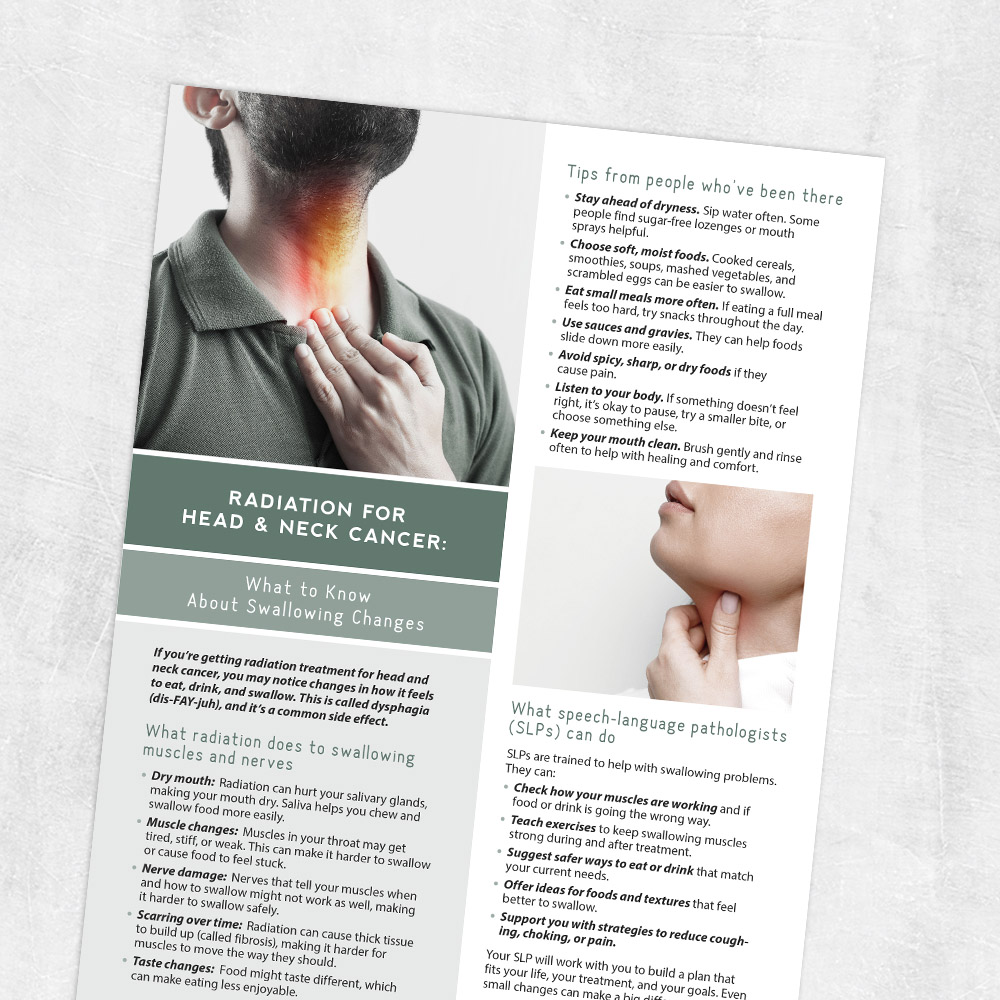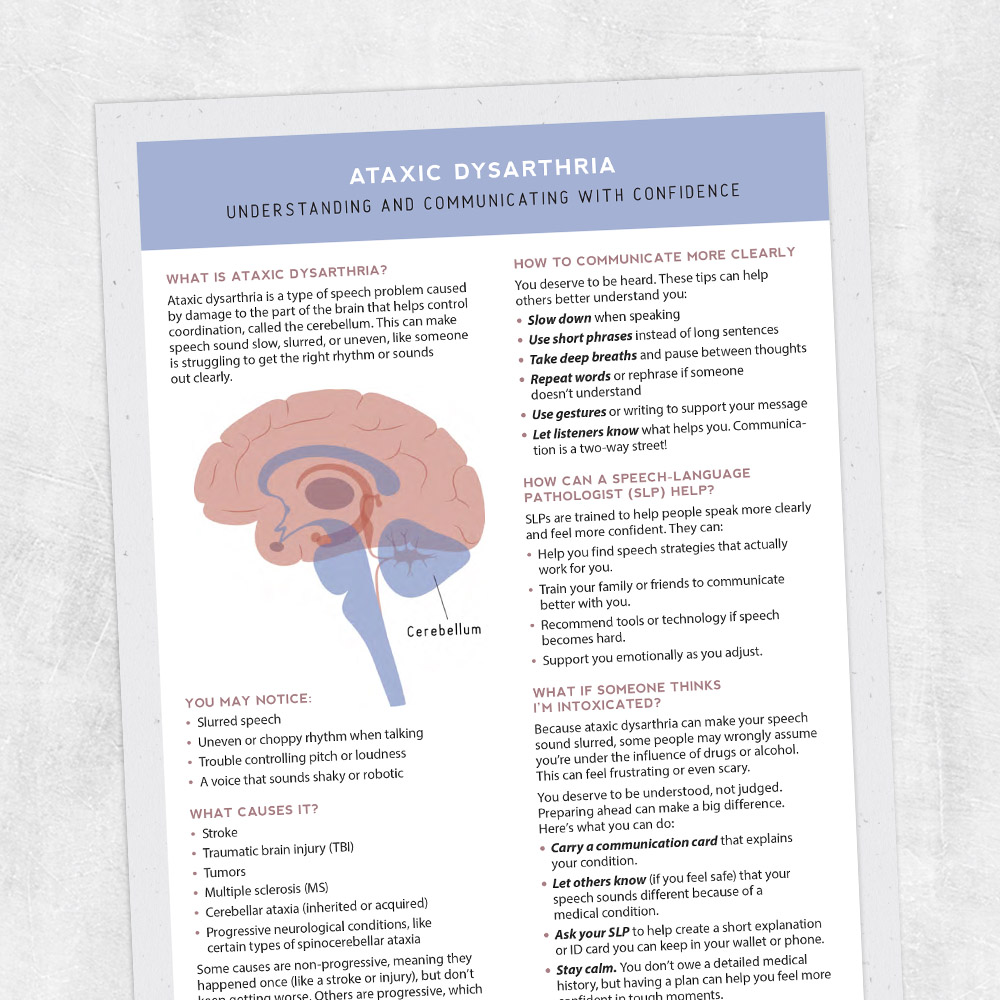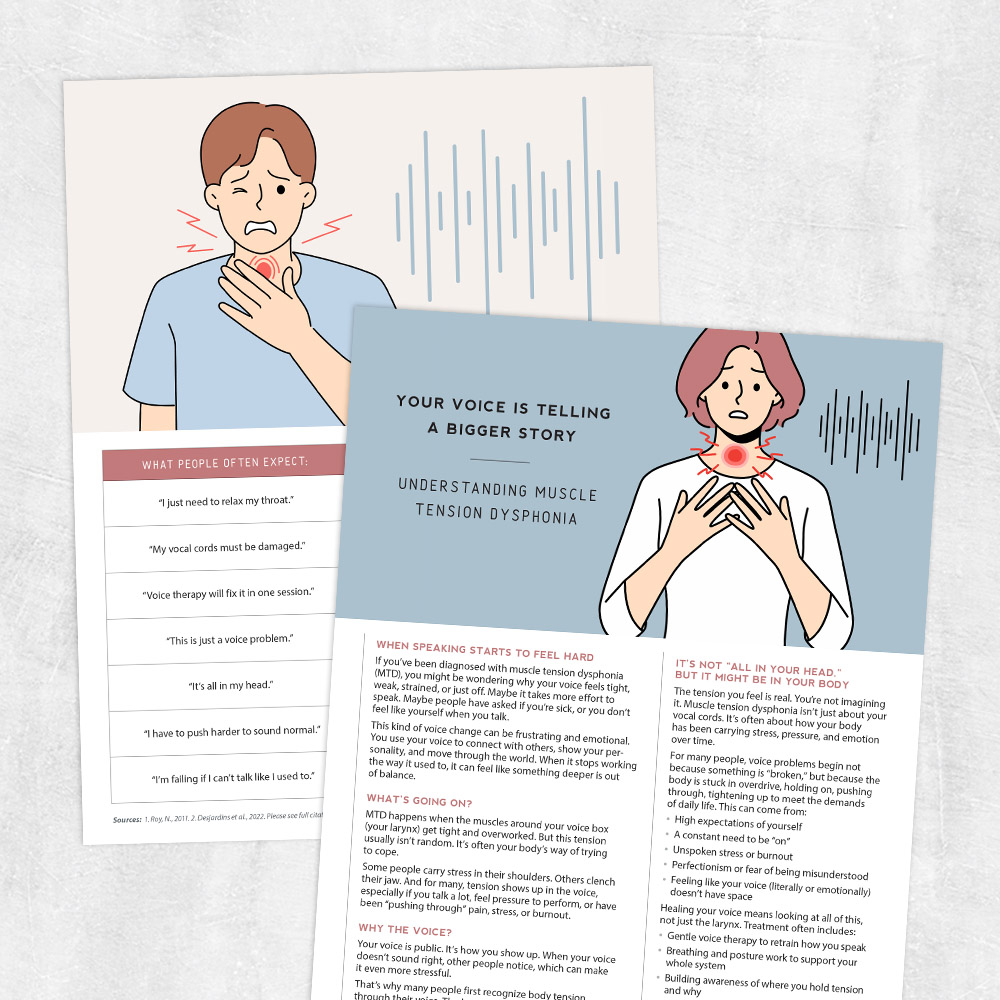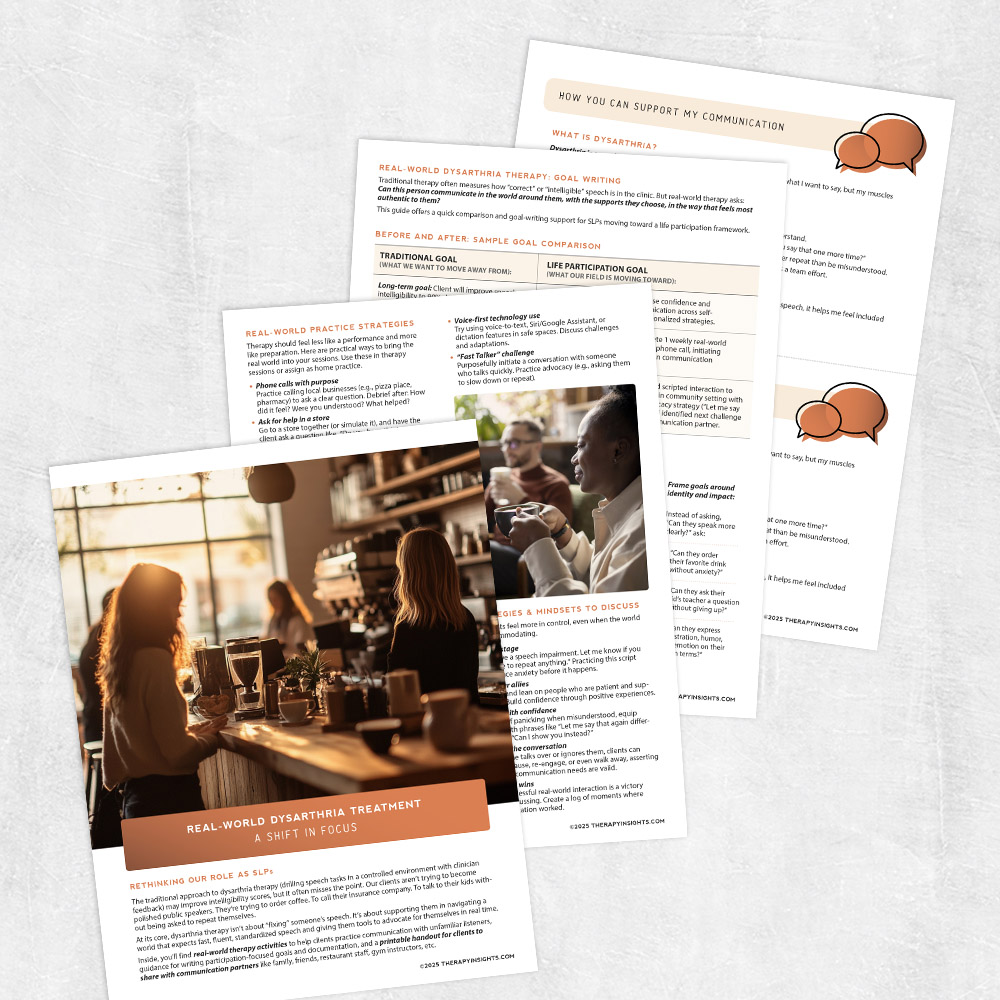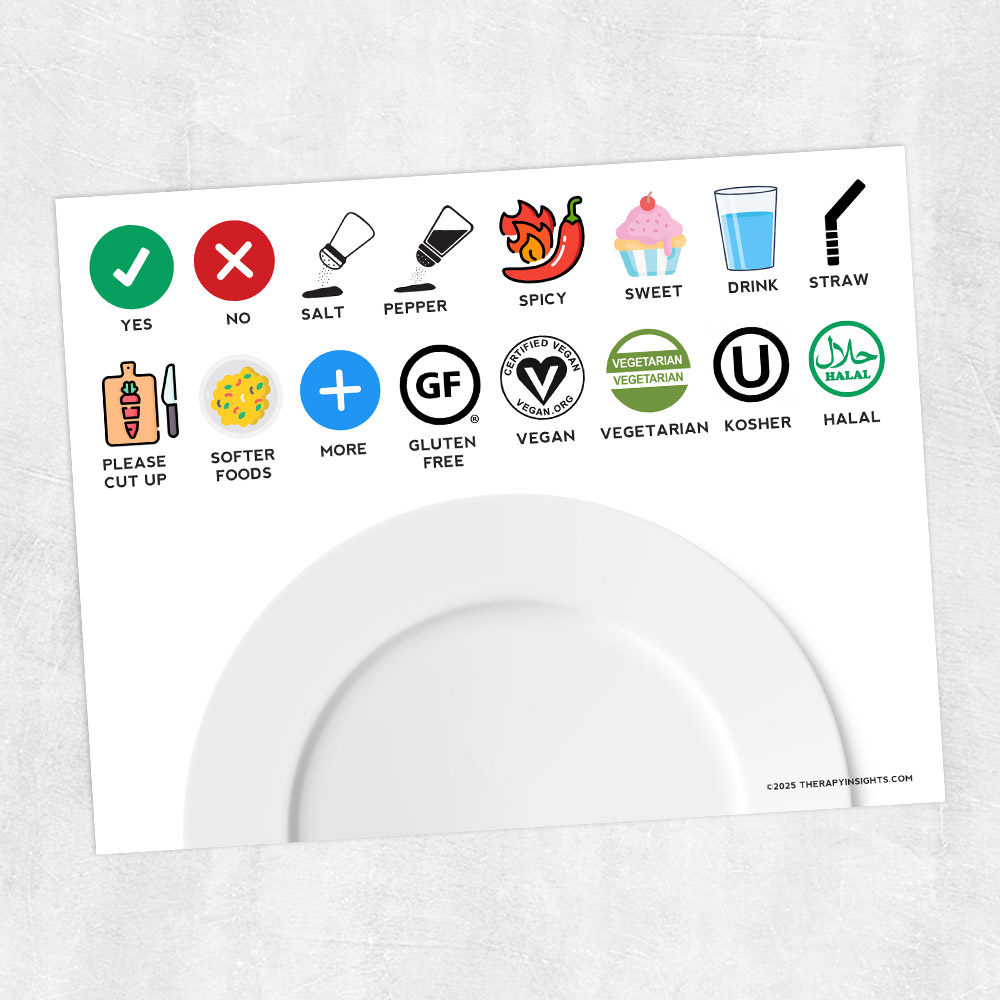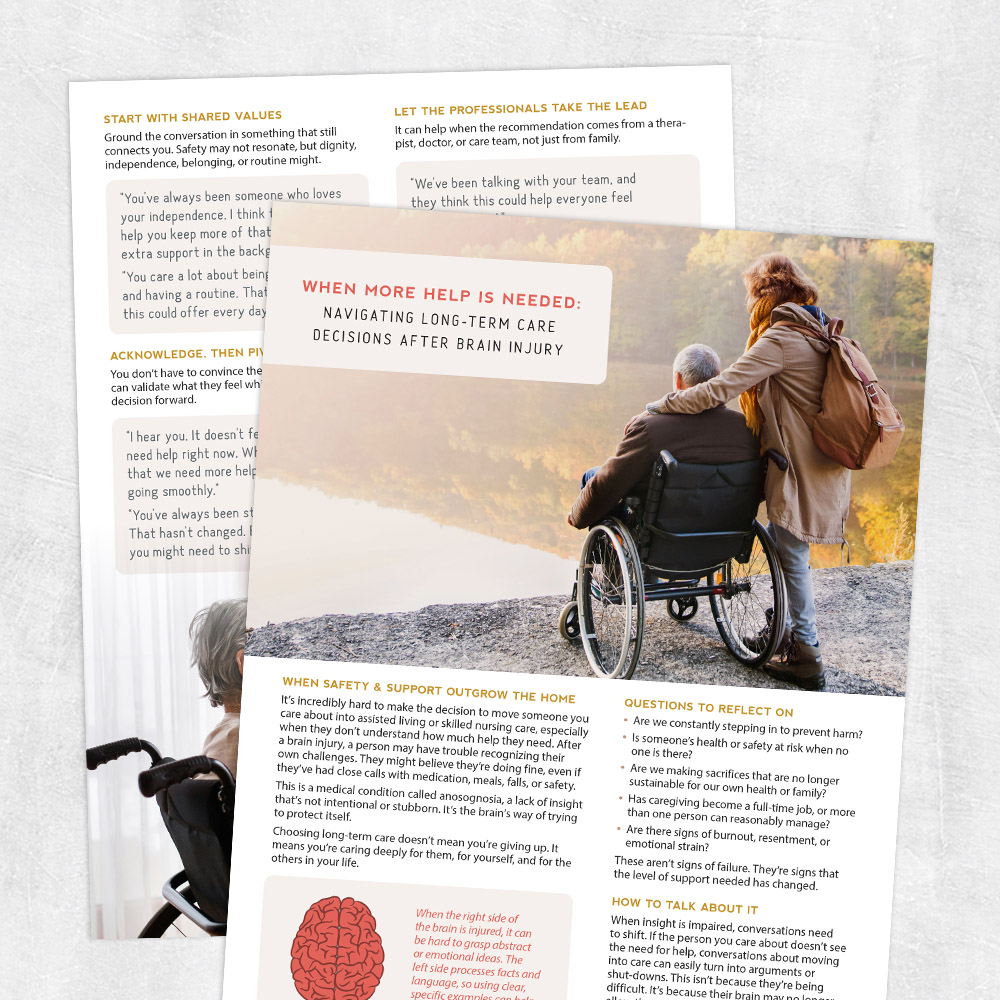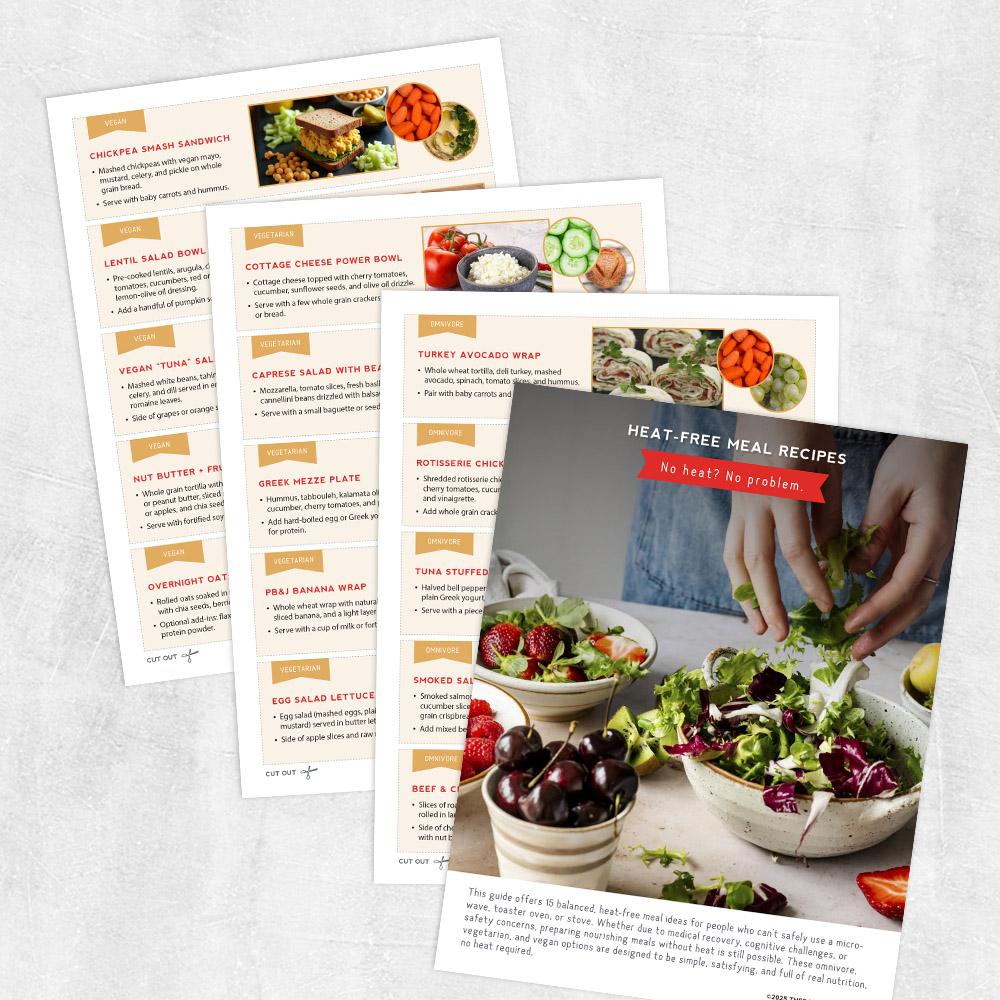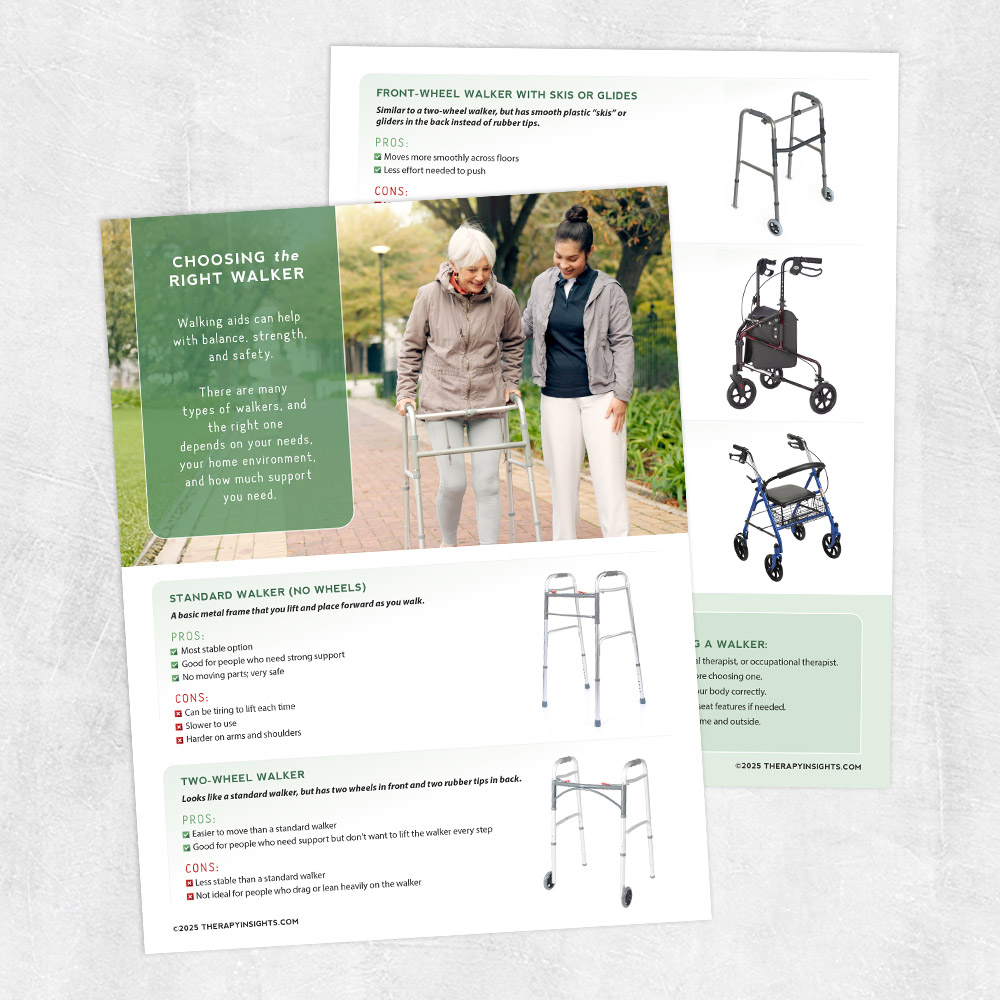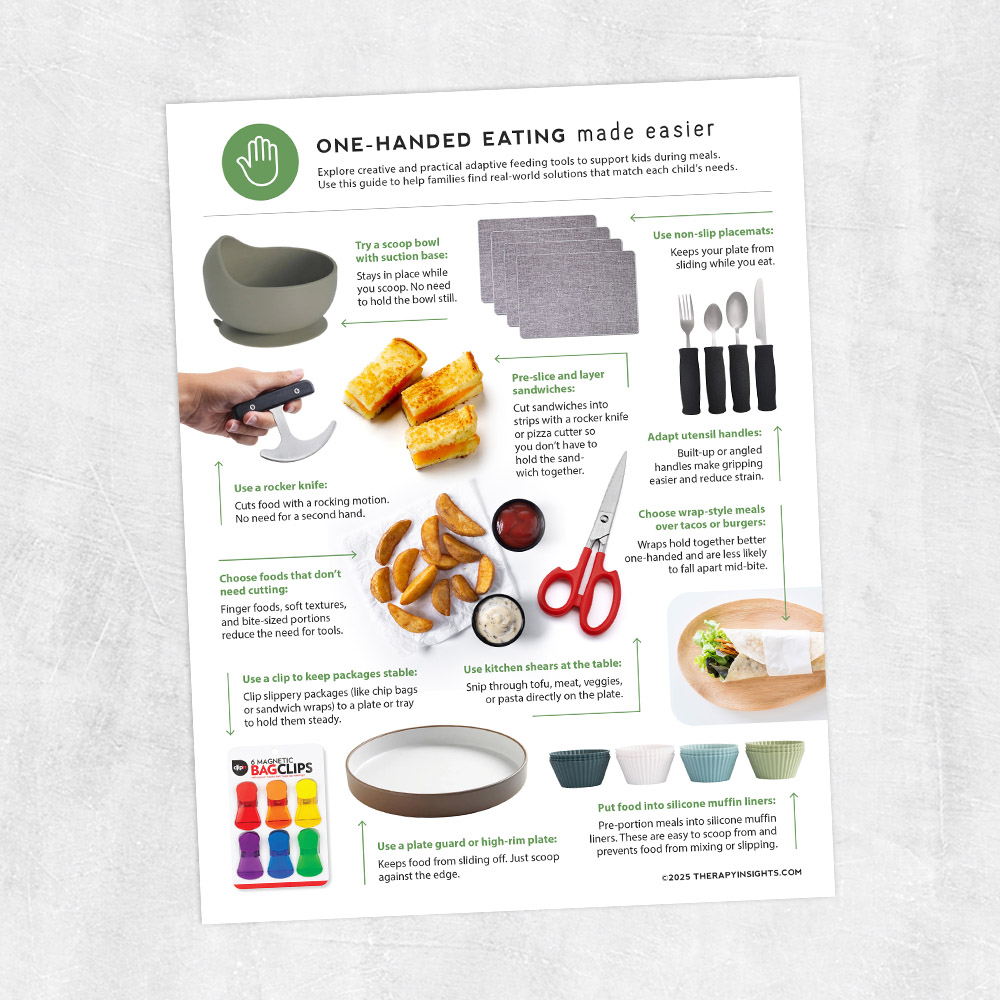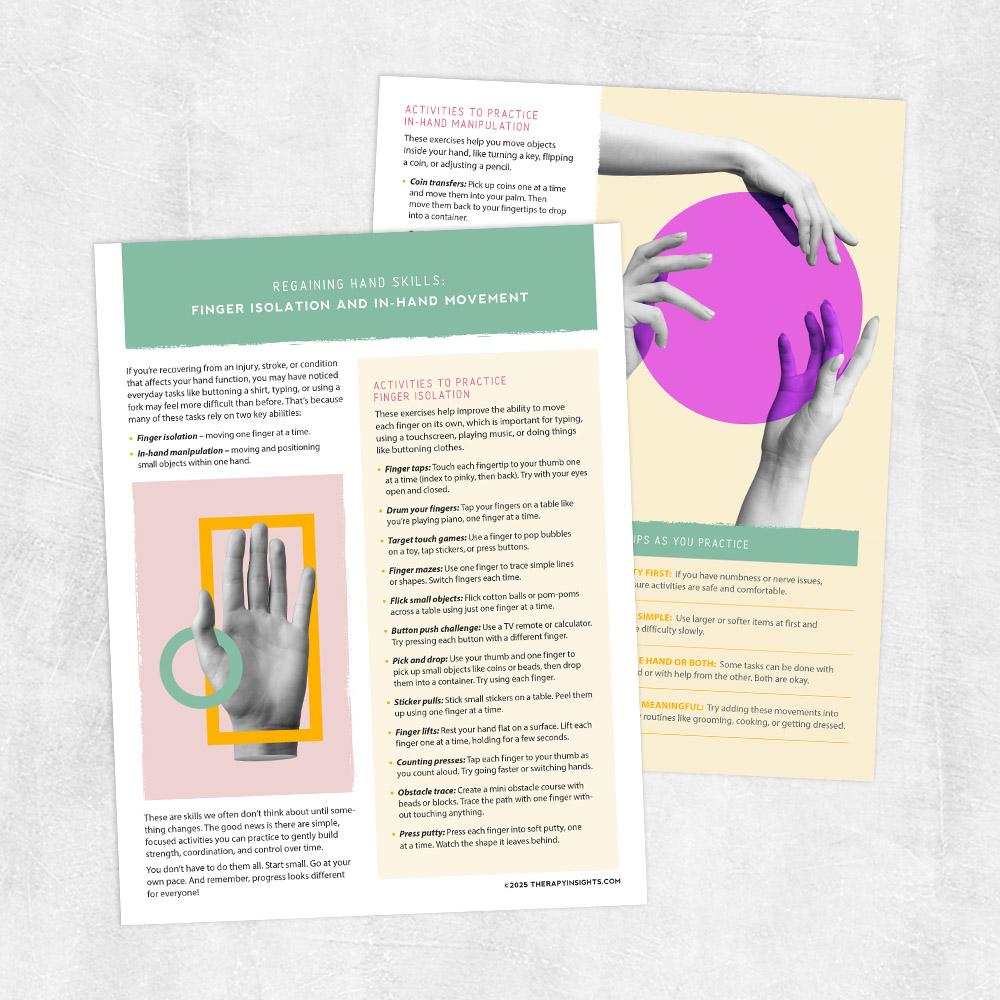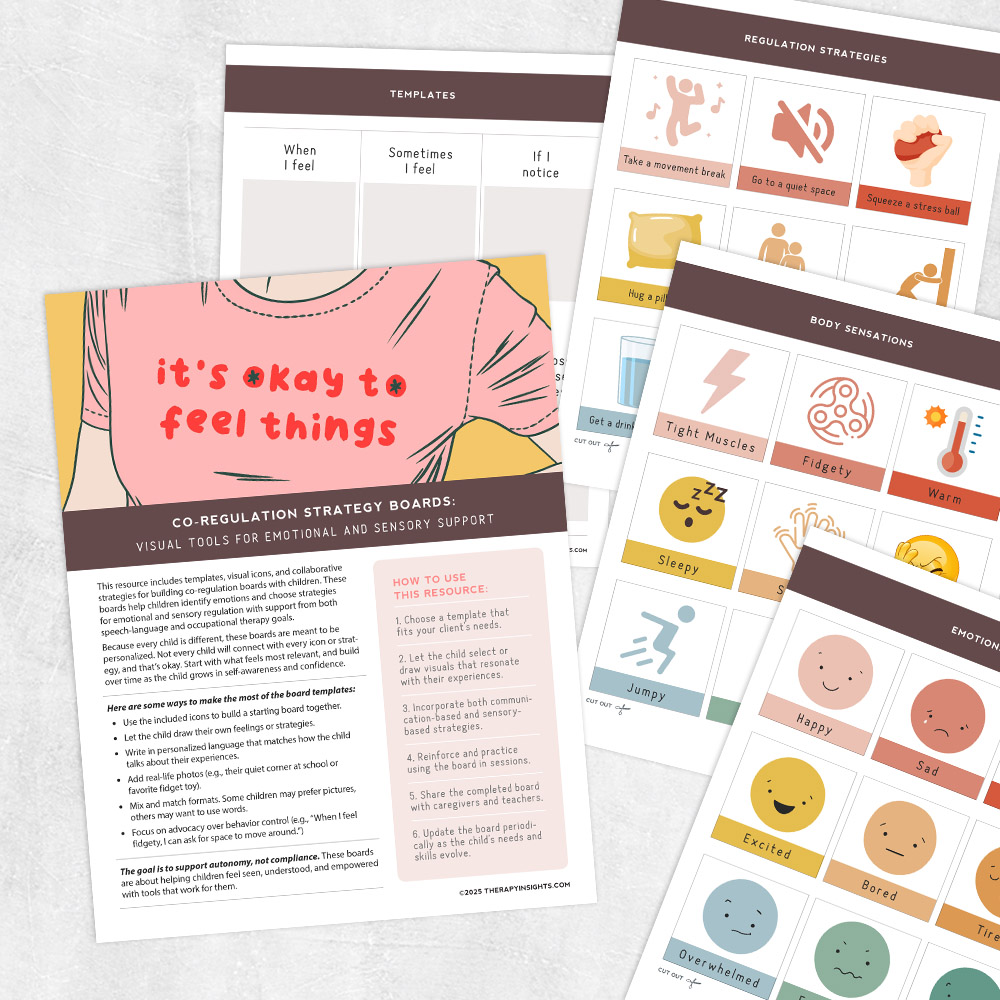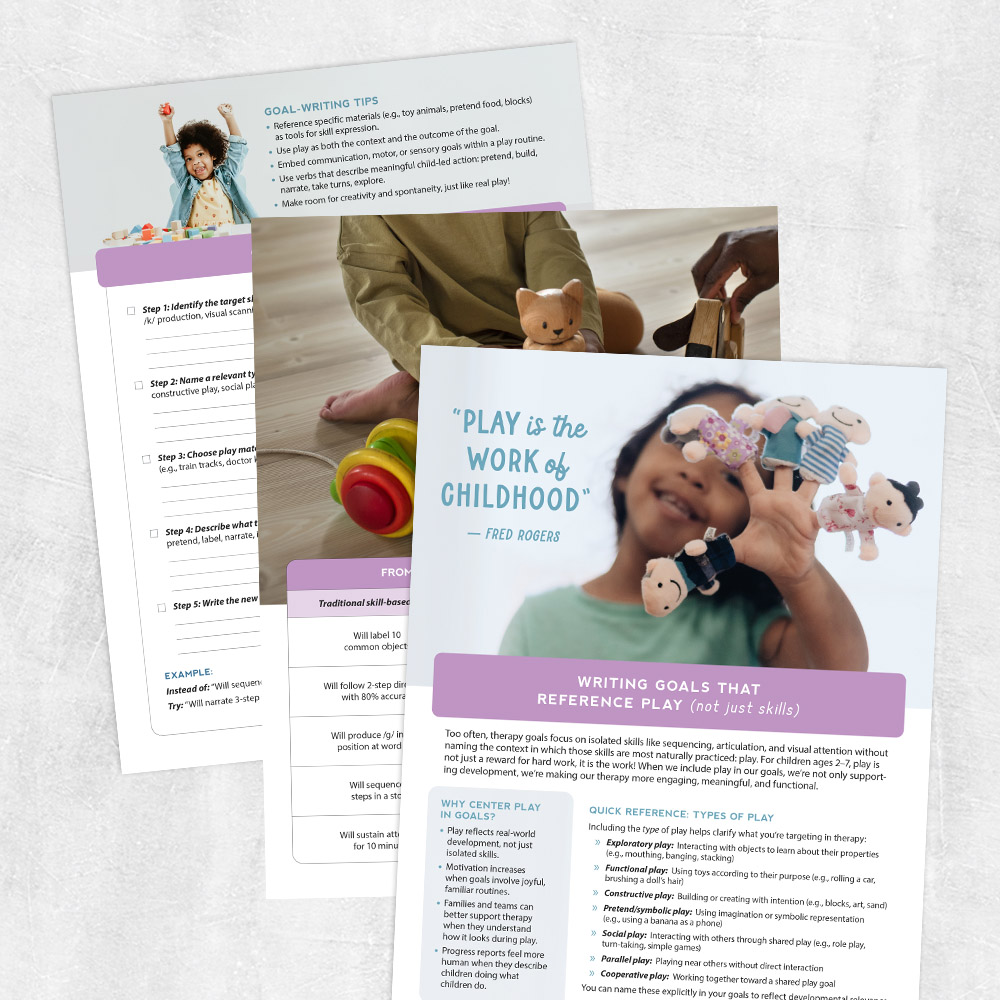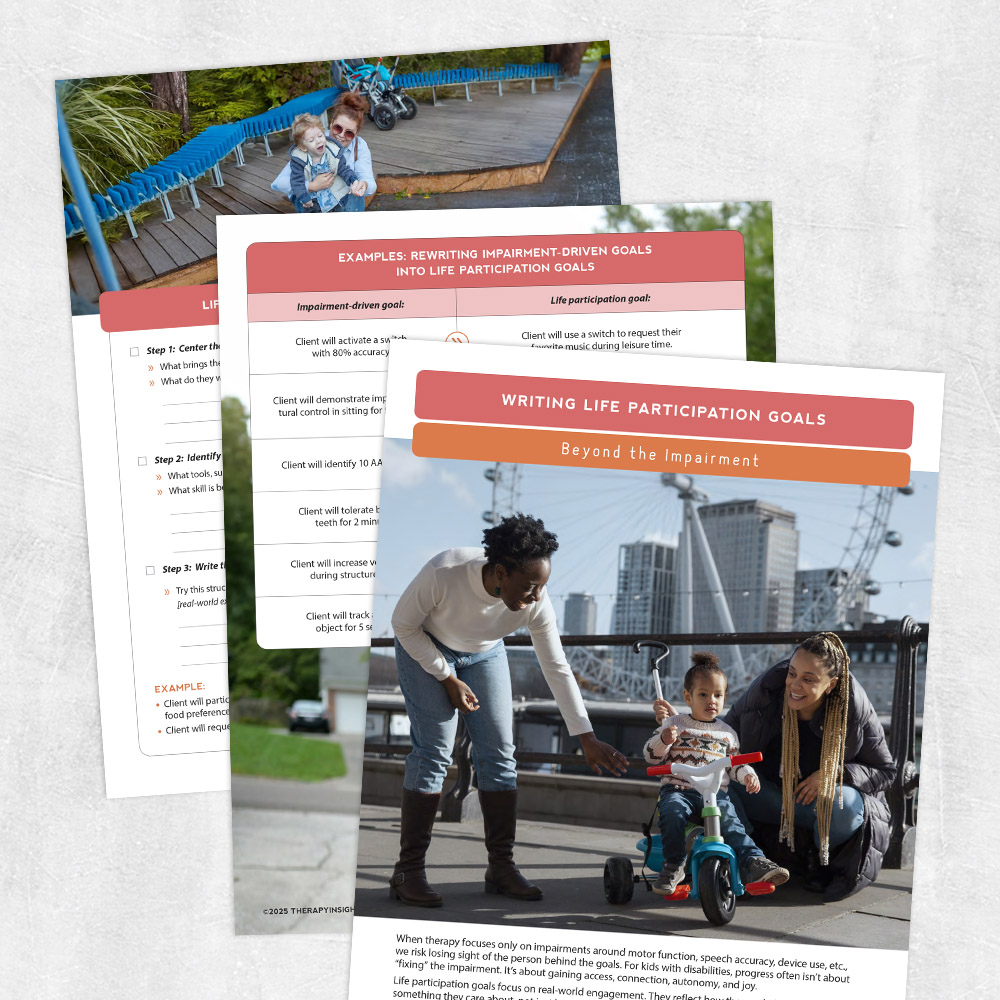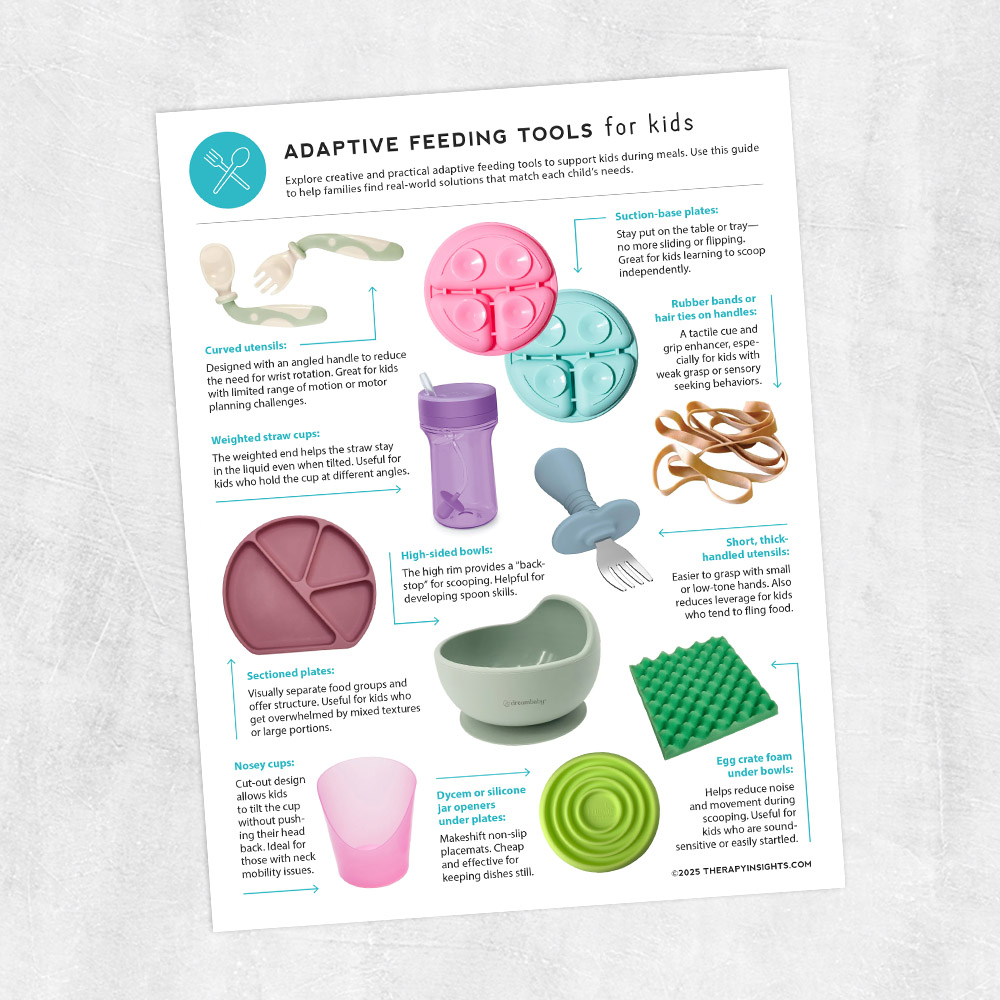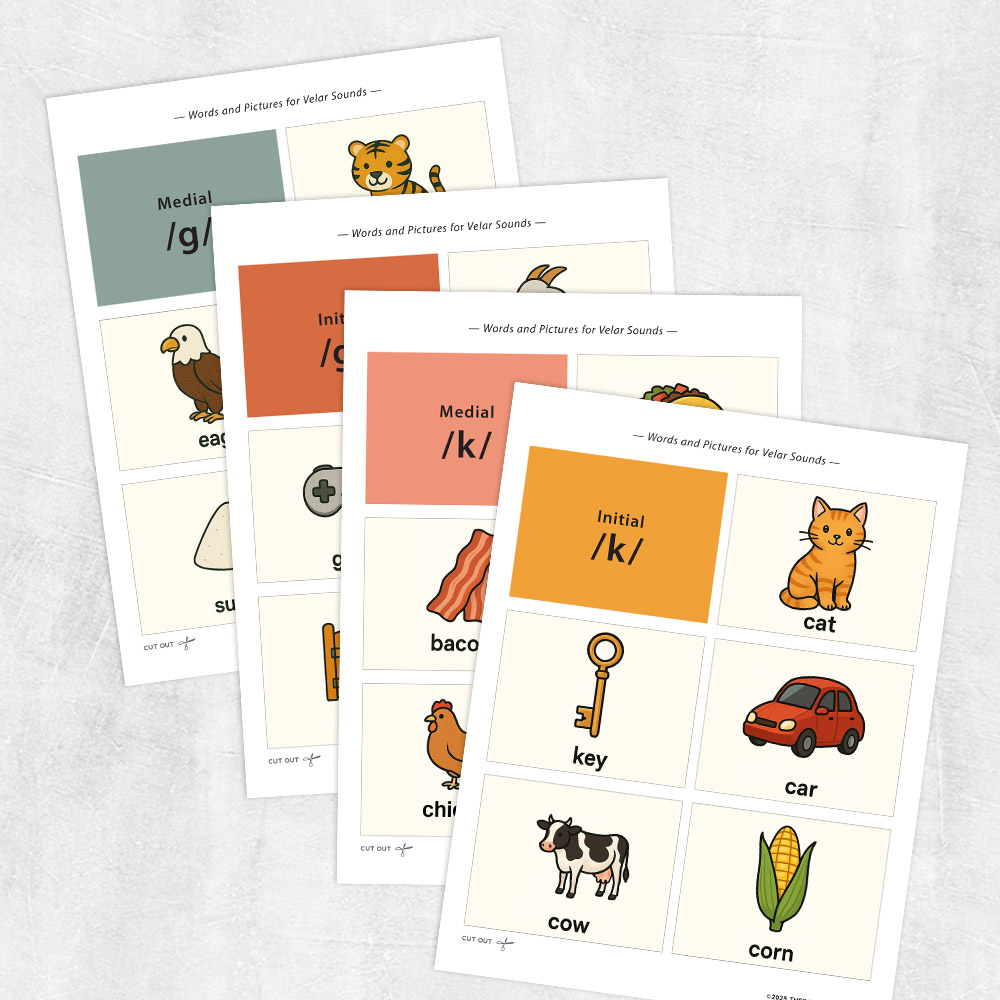From Radiation to Regulation: September’s New Therapy Tools
Every month, we release new therapy resources across adult neuro and clinical pediatrics. These tools are designed to help you meet real needs with real strategies whether you’re supporting patients through swallowing changes after cancer treatment, guiding families through long-term care decisions, or helping kids build regulation skills and confidence in play.
In this post, you’ll find:
- New adult neuro tools that support swallowing, communication, mobility, and daily independence
- New pediatric resources that emphasize co-regulation, play-based goals, participation, and caregiver clarity
Adult Neuro: New Therapy Tools for September
Radiation for Head and Neck Cancer: What to Know About Swallowing Changes
A one-page handout that explains how radiation treatment can affect swallowing in clear, supportive language.
Introduce the role of speech therapy throughout the treatment process, empowering patients with practical tips and realistic expectations.
Ataxic Dysarthria: Understanding and Communicating with Confidence
A patient-friendly overview of ataxic dysarthria with guidance on symptoms, causes, and real-world strategies.
Helps patients and families understand communication challenges while providing tools to reduce frustration and misperceptions, such as being mistaken for intoxication.
Your Voice Is Telling a Bigger Story: Understanding Muscle Tension Dysphonia
A holistic handout exploring how stress, posture, and daily habits influence muscle tension dysphonia.
Encourages patients to connect voice challenges to whole-body wellbeing, helping them reflect on patterns and start building awareness for therapy.
View the resource →
Real-World Dysarthria Treatment: A Shift in Focus
A resource designed to move dysarthria treatment beyond drills and into functional communication.
Includes therapy ideas, goal-writing guidance, and a patient handout that fosters supportive communication with partners, friends, and family.
Mealtime Communication Mat (adult paper-based AAC)
A simple AAC tool to support communication during meals for non-speaking adults.
Provides a quick, intuitive way for clients to express preferences, needs, and safety concerns, reducing frustration and promoting autonomy.
When More Help Is Needed: Navigating Long-Term Care Decisions After Brain Injury
A compassionate guide for families facing decisions about long-term care after brain injury.
Supports therapists in guiding conversations when insight is limited, offering clarity, validation, and strategies for communication.
Heat-Free Meal Recipes
A practical tool with 15 no-cook meal ideas for clients who cannot safely use stoves or microwaves.
Supports independence and nutrition in home health and neuro rehab settings.
Choosing the Right Walker
A visual guide to help patients understand different walker options and find the right fit.
Simplifies decision-making for clients by providing visuals, practical descriptions, and safety considerations.
One-Handed Eating Made Easier
A one-page guide with creative strategies and adaptive tools for eating with one hand.
Helps clients build independence and confidence while sparking problem-solving in therapy sessions.
Regaining Hand Skills: Finger Isolation and In-Hand Movement
A clear, patient-facing guide to finger isolation and in-hand manipulation exercises.
Provides simple, accessible activities for rebuilding fine motor skills after neurological change, empowering clients to practice at home.
What’s Coming in October…
We’re continuing to build tools that reflect your commitment to clarity, care, and real-world practice. In October, look for:
- A supportive handout on connection in dementia care
- Two new Neuro-FAST subtests: Communication and Medication Management
- A functional restaurant script + pocket flipbook for clients with aphasia
- A real-world comparison task using internet plans to build scanning and decision-making skills
- Six printable daily planner templates to support organization and goal-tracking
- A guide with fresh strategies for sleep challenges after stroke, brain injury, or SCI
- A caregiver handout on understanding sundowning with practical, supportive strategies
- A reflective tool for exploring identity, mental health, and ableism in chronic illness
Clinical Pediatrics: New Therapy Tools for September
Co-Regulation Strategy Boards: Visual Tools for Emotional and Sensory Support
A collaborative resource that helps kids co-create visual strategy boards for self-awareness and regulation.
Therapists can use these boards to integrate sensory supports, advocacy language, and cross-discipline goals in ways that grow with each child.
Writing Goals That Reference Play (Not Just Skills)
A practical guide to writing goals that center meaningful play rather than isolated skills.
Includes examples, types of play, and a worksheet for reframing skill-only goals into developmentally appropriate, authentic engagement.
Writing Life Participation Goals: Beyond the Impairment
A framework for shifting therapy goals toward autonomy, connection, and everyday engagement.
Provides real-world examples and a worksheet to help you write goals that reflect what truly matters to the child and family.
Adaptive Feeding Tools for Kids
A curated list of adaptive feeding tools for greater independence and comfort during meals.
Helps families identify tools tailored to each child’s motor and sensory needs while supporting you in guiding personalized mealtime solutions.
Words and Pictures for Velar Sounds
A set of 60 picture cards targeting /k/ and /g/ sounds in all word positions, plus minimal pairs for fronting.
Designed with engaging visuals and practical organization to make velar sound practice simple and effective in therapy.
What’s Coming in October…
We’re continuing to build pediatric tools that reflect your commitment to play, participation, and real-life support. In September, look for:
- Exhalation activities for children with tracheostomy and post-ventilation to support early voicing in a developmentally appropriate way
- A pronoun activity with character cards to build grammar while modeling respectful, identity-affirming language
- An identity map for kids after brain injury to support reflection, self-expression, and rebuilding sense of self
- A quick-reference guide to your pediatric dysphagia team that explains each professional’s role in swallowing care
- A guided activity for ADHD roadblock reframes, helping kids reframe self-critical thoughts into strengths-based language

